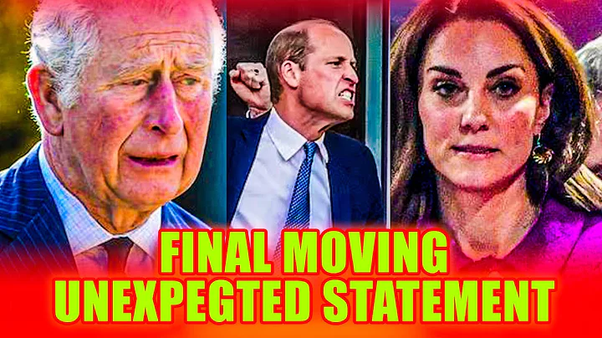Royal Tensions Boil Over: King Charles’ Frustration Sparks Family Controversy
The British royal family has faced its fair share of internal challenges, but recent rumors of King Charles expressing deep frustration with his family have ignited speculation about the dynamics within the monarchy. While unconfirmed reports suggest that the King feels “deeply hurt” by perceived failings among his sons, this hypothetical scenario sheds light on the emotional complexity of leading both a family and a nation.

The Weight of Tradition and Modernity
As King, Charles shoulders the dual responsibility of preserving royal traditions while ensuring the monarchy’s relevance in a rapidly changing world. His frustration—real or imagined—may stem from the challenges of managing these competing priorities. His sons, Princes William and Harry, represent contrasting approaches to public service and royal duty. William, as the Prince of Wales, has embraced his future role as king, focusing on sustainability initiatives like the Earthshot Prize. Harry, however, has pursued a path outside the royal fold, prioritizing personal freedom and causes like mental health and veteran support.
While these differing approaches highlight the evolving nature of the monarchy, they may also create tension, particularly for Charles, who has spent decades preparing for his role as sovereign. For a man deeply committed to continuity and tradition, these differences could feel like a divergence from the unified family image he wishes to project.
Recent Challenges Within the Royal Family
The past few years have been particularly tumultuous for the royal family. From the public fallout following Harry and Meghan Markle’s departure to recent health challenges faced by both King Charles and Queen Camilla, the family’s resilience has been tested. If the King does feel disappointed, it could reflect his desire to see his sons united in purpose and supportive of the institution he now leads.
Reports of tension have frequently centered on the differing priorities of William and Harry. For Charles, these divisions may feel deeply personal, as they threaten the unity that his late mother, Queen Elizabeth II, worked so hard to maintain. The hypothetical expression of frustration might also reveal the emotional toll these challenges have taken on the King, who has long been an advocate for open dialogue and reconciliation.
The Role of Public Perception
For the royal family, personal grievances are never entirely private. Public perception plays a significant role in shaping the monarchy’s image, and any hint of discord can quickly become fodder for speculation. King Charles, who has spent much of his life in the public eye, understands the stakes of maintaining a stable and cohesive royal image.
However, moments of vulnerability—like the rumored frustration—can humanize the monarchy, making its members more relatable to the public. While such candid expressions might invite criticism, they can also foster empathy, as they reveal the emotional complexities of balancing family relationships with public expectations.
Opportunities for Reconciliation
Despite the challenges, moments of tension can also pave the way for reconciliation and growth. King Charles has emphasized the importance of dialogue and understanding, particularly in addressing family disputes. If the reports of his frustration are rooted in reality, they could serve as a catalyst for deeper conversations among the royal family.
Both William and Harry have, in their own ways, demonstrated a commitment to their father’s legacy. William’s work on environmental sustainability aligns closely with Charles’s lifelong passion for conservation, while Harry’s advocacy for mental health echoes the King’s emphasis on emotional well-being. These shared values could provide common ground for reconciliation, even amid differing approaches to royal duty.
The Monarchy’s Path Forward
As the royal family navigates these internal dynamics, its ability to adapt and evolve will be crucial to its future. King Charles’s reign marks a transitional period for the monarchy, as it seeks to balance tradition with modernity. Openly addressing challenges, whether through private dialogue or public gestures, could strengthen the family’s bond and reaffirm its commitment to serving the nation.
The hypothetical scenario of King Charles expressing frustration ultimately underscores the humanity of a family tasked with extraordinary responsibilities. It reflects the universal struggles of navigating relationships, adapting to change, and finding common ground. In doing so, it reminds us that even the most iconic institutions are shaped by the individuals within them.
Would you like further exploration of a specific aspect, such as the impact on public opinion or historical parallels in royal family dynamics?